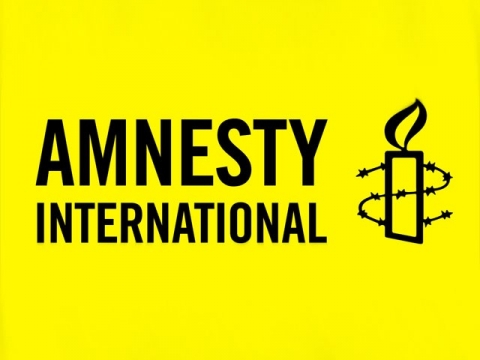Freedom from Torture
Civil Society Coalition against Torture and impunity in Tajikistan

President of Tajikistan Emomali Rahmon is celebrating his 60th birthday and State Language Day on 5 October and celebrations by governmental bodies and organisations are expected nationwide today. Amnesty International would like to remind people about the plight of many victims of torture – some of whom did not survive to celebrate their 30th birthday or who spend their birthdays behind bars following unfair trials. Unfortunately, their credible allegations of torture are not given the same attention that the officials in Tajikistan pay to the President’s birthday and State Language Day.
We have compiled substantive and credible information about over dozens of people who suffered torture and other ill-treatment in the hands of government officials which deeply affected on their lives and lives of their families. Some of them died as a result of torture or ill-treatment and their families still wait for the truth about what has to be made public and for the perpetrators to be brought to justice. Others were imprisoned following unfair trials where their confessions obtained under torture were used in court. Some have been subjected to intimidation and harassment and effectively silenced by officials for speaking out about the treatment they or their loved ones received at the hands of security.
According to Amnesty International’s research, torture and other ill-treatment in pre-trial detention is widespread in Tajikistan. Recently, the Tajikistani authorities have implemented some measures intended to tackle the practice of torture. On 12 September 2012 a police officer was sentenced to a seven year prison term for the torture of a 17-year-old child. This was the first time an official was found guilty and sentenced under the new article in the Criminal Code criminalising torture introduced in March 2012.
However, despite these initial positive signs, Amnesty International receives new reports about torture and other ill-treatment in custody and continued impunity for the perpetrators. There appears to be no change in practice among police, prosecutors and judges in the regions and significant gaps remain in legislation and practice today which obstruct the procedural rights of detainees and prevent the implementation of key safeguards against torture. Amnesty International is also concerned at the lack of prompt, thorough and impartial investigations in all other cases where torture is alleged. In addition, there has been little progress in enabling effective investigations into deaths in custody, including cases of Bahromiddin Shodiev, Khurshed Bobokalonov, Safarali Sangov, Ismonboy Boboyev. Despites numerous allegations of torture, Amnesty international is concerned about the small number of convictions and the practice of applying amnesties in cases where states officials have been prosecuted for torture and ill-treatment.
Amnesty International is particularly concerned at recent reports that in the case of Safarali Sangov the police men convicted for “exceeding official authority” and “negligence” benefited from an amnesty. The practice of applying amnesties in such cases could foster a climate of impunity. According to reports the Prosecutor’ Office ruled on amnesty in summer 2012, but the lawyer working on the case was not informed despite the fact that she contacted the Prosecutor’s Office regularly in connection with appeals relating to ongoing investigations into the case. Safarali Sangov’s widow only recently learnt of the amnesty decision despite having spoken to the investigator on the case of cause of death as recently as the end of August. There is some speculation that this amnesty may have been granted due to possible relation of one of the police officials to the President. Commentators fear that the prosecutor’s decision to grant amnesty was kept quiet to prevent the defence lawyer from appealing it.
The UN Committee against Torture has specifically recommended that Tajikistan “adopt measures to ensure detainees prompt access to lawyer, doctor and family members from the time they are taken into custody”. In practice lawyers’ access to their clients is often significantly delayed. Detainees in Tajikistan often are not able to inform family members about their detention and whereabouts within 12 hours of apprehension or at all. There are no routine medical examinations upon admission to police stations and temporary detention facilities (IVS). When there is reason to believe that a prisoner has been ill-treated, the prisoner is not given an immediate medical examination by a doctor who is able to make an accurate report without fearing interference or reprisals. The Special Rapporteur on Torture has said that those legally arrested should not be held in facilities under the control of their interrogators or investigators for more than the time required by law to obtain a judicial warrant of pre-trial detention which, in any case, should not exceed a period of 48 hours. In practice in Tajikistan detainees are sometimes transferred to pre-trial investigation detention facilities (SIZOs) from police custody after much longer than 72 hours.
In view of the above, Amnesty International urges the President of Tajikistan to mark his birthday by enabling dozens of people – victims of torture and their relatives - to find justice. In particular, Amnesty International calls the President to: